
Neil Adger
@neiladger
Professor in Geography, University of Exeter.
Research: @projectmisty @CityMigrants @floodwellbeing @HABITABLE_H2020
ID: 852123008
http://geography.exeter.ac.uk 29-09-2012 02:51:27
5,5K Tweet
3,3K Takipçi
1,1K Takip Edilen
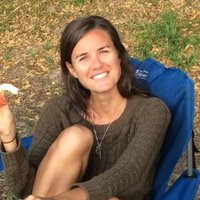
New npj Ocean Sustainability paper finds tension in responsibility debates among 243 scientists working on ocean-climate innovations. Debates oscillated between protecting scientific autonomy at one extreme, & moral duty for socially just futures at the other rdcu.be/dVqLU 1/3


Important conference for an important and challenging issue for Bhutan IDRC | CRDI Foreign, Commonwealth & Development Office Mark Tebboth 🇵🇸 Maharjanamina Dr Chandni Singh Development UEA 🌍 ExeterGeography

Totally agree with your assessment Joeri Rogelj - especially on the low likelihood of effective adaptation. Not least the irreversibility of impacts, and the costs to society well beyond infrastructure and property. And we know there is already a massive adaptation deficit

Finally out📢 Happy to share our new study in NatureClimate on the impacts of drought & aridity on internal migration worldwide 🌍 We show that #climate can be an important #migration driver but not for everyone & everywhere nature.com/articles/s4155… Here's what we find 🧵 1/


Going to 2025 American Association of Geographers in Detroit? Here's the CFP of a paper session I've co-organized on "Decolonial Geographies of Climate Change" with Miriam Gay-Antaki & co-sponsored by Human Dimensions of Global Change Specialty Group CAPE AAG AAG Development Geographies Specialty Group. Abstracts due 10/31. Please share onwards. Thanks! #AAG2025

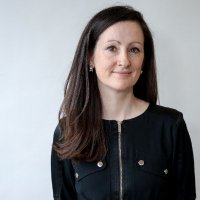
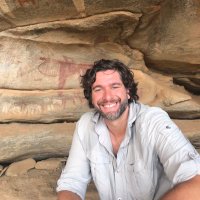
I’m delighted to be feature in the new podcast series ‘Voices on the Move’. Together with François Gemenne and colleagues from The HABITABLE Project we help unpack the climate-mobility nexus. Global Systems Institute ExeterGeography


2/ Next is ‘Geography and climate vulnerabilities’ by Diana Liverman: This paper argues that geographers have played a fundamental role in the assessments conducted by Working Group 2 of the Intergovernmental Panel on Climate Change (IPCC). doi.org/10.1111/tran.1…
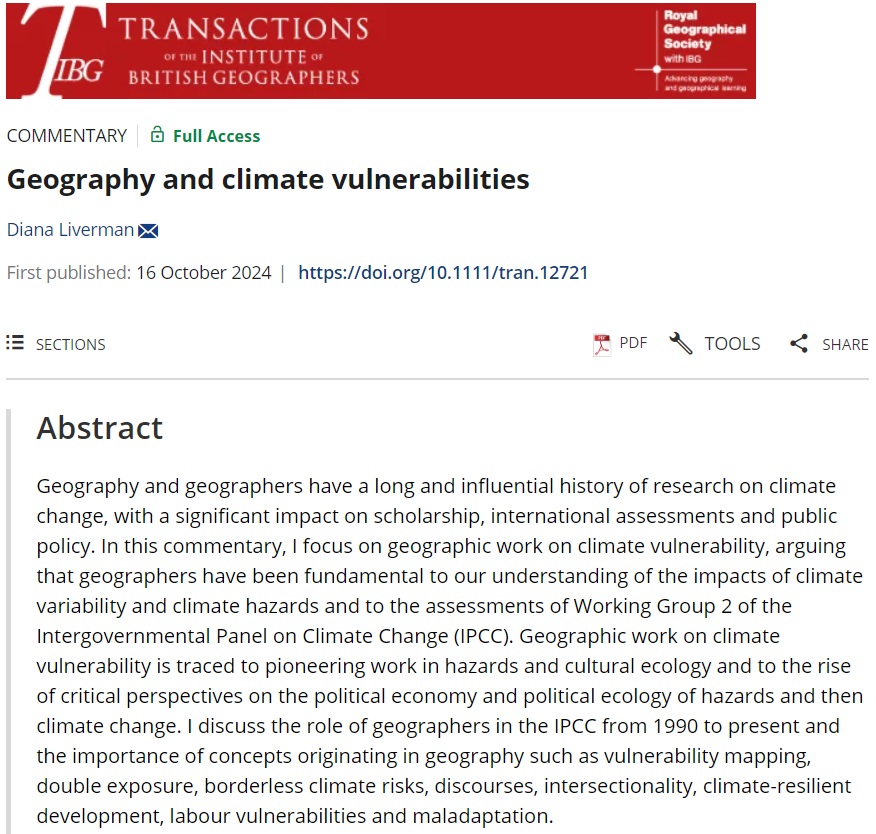

5/ Next, Laurie Parsons argues that climate geography as a field offers the opportunity for substantial innovation: 'Skeletons, dragons and the ‘climate war’: Geography's colonial legacy and the uneven landscape of environmental knowledge'. #OpenAccess doi.org/10.1111/tran.1…
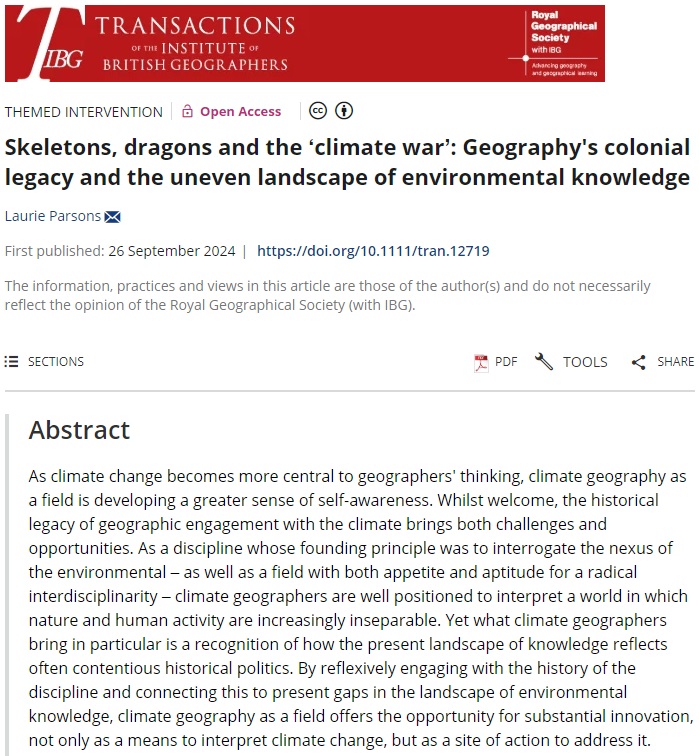

❗Interpretations are what determine responses much more than raw facts. How do narratives shape the way we perceive & respond to migration? ➡️ Blanca Garcés explains the elements that make narratives impactful Read the 1st #MigrationCoLab 'short' 🔗 loom.ly/eK_Kaxk
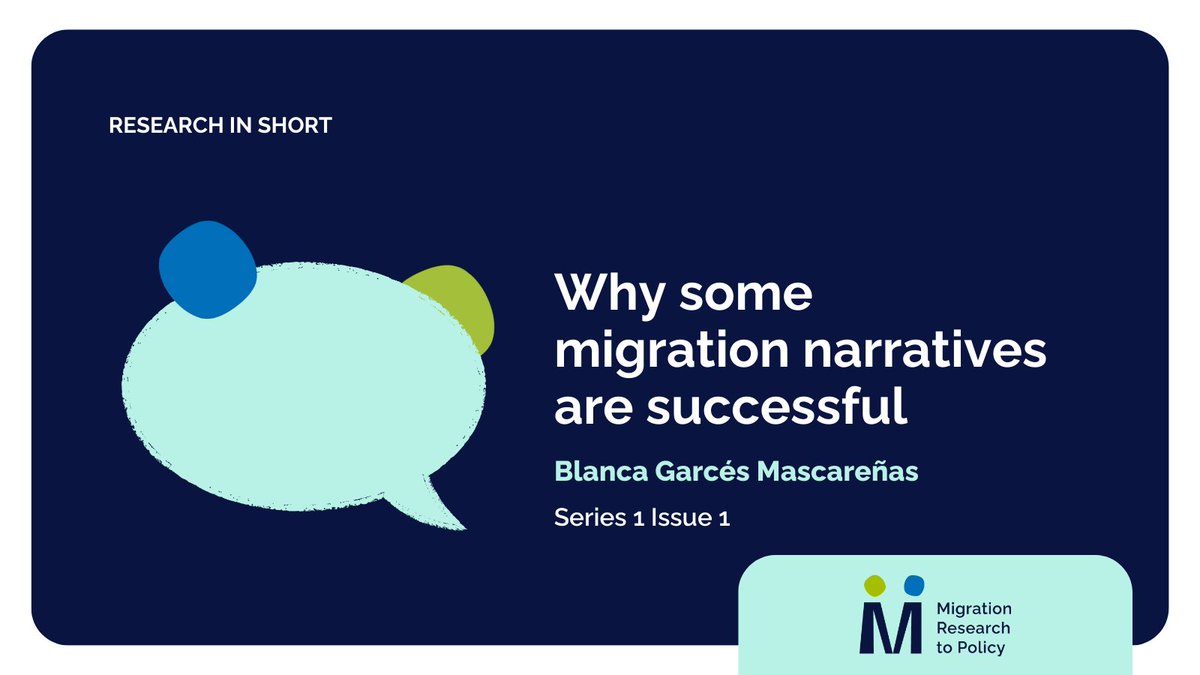

Most read on #RTEBrainstorm: if devastating & destructive Spanish floods don't ignite climate action, what will? By Conor Murphy Maynooth Geography ICARUS Maynooth Maynooth University rte.ie/brainstorm/202…

Yes we are focussed on the mission of climate solutions that help promote health and wellbeing. Including team in ExeterGeography Catherine Butler and others

Habitability of place, the capability to stay, the right to move, and dignity in choice. We grappled with these consequences of climate change in hugely engaged and interdisciplinary team in The HABITABLE Project. Thanks Harald Sterly @hasterly.bsky.social and @PSakdapolrak and many colleagues for distilling

Join us for the final 'Migration & Climate Change' seminar of this term Development UEA 🌍 with Neil Adger!📅 Dec 2 (Mon) |⏰ 12 PM (UK) |💻 Link: us02web.zoom.us/j/89930639503 IDRC | CRDI FCDO Research, Science and Technology Mark Tebboth 🇵🇸 Nitya Rao Dr Chandni Singh Ricardo S. de Campos @RedickerSarah Jelle J P Wouters


Overcoming structural inequalities in cities through building empathy between marginalised groups and planners. It is possible and tackles major injustices. OA at npj Urban Sustainability. w Bangladeshi colleagues Lucy Szaboova Ricardo S. de Campos University of Exeter News nature.com/articles/s4294…


Empathetic methods, I'm so here for it! Check out new paper by Lucy Szaboova Neil Adger Ricardo S. de Campos et al. on using PhotoVoice as a more relational entry point into urban planning in the context of #migration Yasho @ranjitnihal

Led by the great Harald Sterly @hasterly.bsky.social w many The HABITABLE Project colleagues. Our thoughts on place and habitability, role of mobility in adapting to climate change, and need for pluralism avoiding deterministic notions of people and places at risk. Ricardo S. de Campos Maria Franco Gavonel @RedickerSarah

Our IDRC | CRDI project examines what planned relocation means through the lived experiences captured by Photovoice. Do the positive outcomes outweigh the challenges of design and implementation? Find out more here 👇 Oana Stefancu Neil Adger RMMRU




